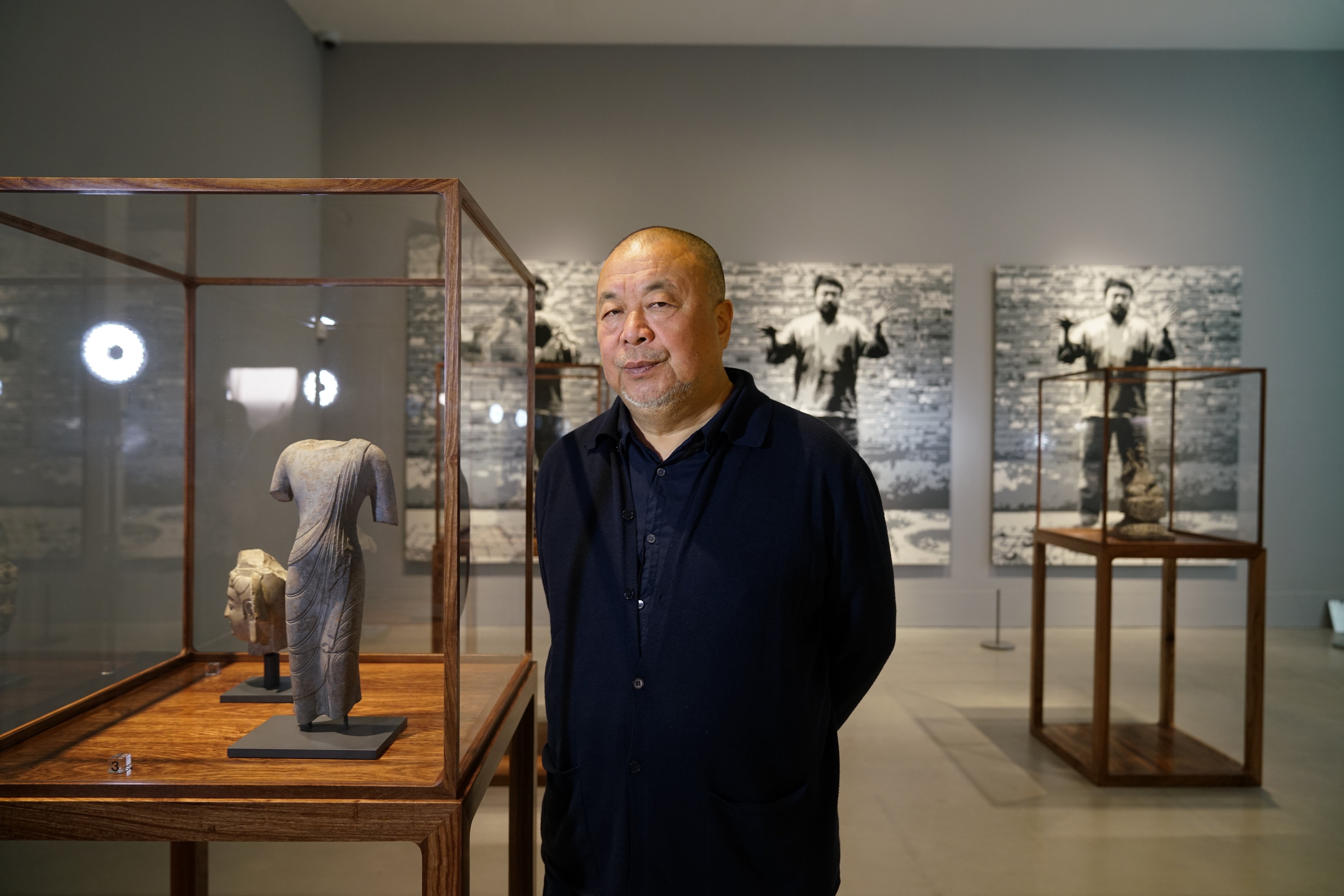Chinese artist Ai Weiwei awarded global arts prize valued at more than £90,000
Previous British winners include David Hockney, Sir Anish Kapoor and Dame Judi Dench.

Chinese dissident artist Ai Weiwei has spoken about the right to “freedom of expression” as he was awarded a global arts prize valued at more than £90,000.
He has been named the 2022 sculpture laureate of the Praemium Imperiale prize by the Japan Art Association, which also recognises creatives in the fields of painting, architecture, music and theatre/film.
Weiwei, who is best known for working on the design of Beijing’s Olympic stadium, and filling the Tate Modern’s Turbine Hall with hand-crafted, porcelain sunflower seeds in 2010, is an outspoken critic of China’s human rights record.
His work has also explored the migrant crisis and the many challenges facing the planet.
In a video reflecting on his work, Weiwei said: “My vocabulary has no taboo. I try to test, to cross those limits to show who I am and also to say this is about freedom of expression.”
He added that he thinks art can have the “potential to change our views about who we are and what kind of world we are living in”.
Born in Beijing, his family was exiled to north-west China as his father, who was a poet, was considered an “enemy of the state”.
In the 1980s he moved to the US and developed his politicised style before returning to China.
His vocal challenges against the Chinese communist state led to his detention.
Reflecting on his time with law enforcement, he recalled: “Police told me you are an artist but you did a journalist’s job, a lawyer’s job.
“I’m certainly dangerous for the people who is so corrupted.”
He added: “I kind of understand they have to arrest me, they have to stop me. If they don’t do so, I would make some change, which is not desirable for them.”
Weiwei currently lives in Europe and is using his experience of detention to curate an exhibition of art by people in the UK’s criminal justice system, at Southbank Centre, which will run from October 27 to December 18.
The exhibition is to mark the 60th anniversary of the Koestler Awards, an annual programme encouraging people from the UK’s criminal justice system to change their lives through the arts.
The Japan Art Association and Lord Patten of Barnes, Praemium Imperiale’s international adviser in the UK, announced the five laureates, who have each been awarded 15 million yen (£90,900).
Lord Patten said: “In these deeply polarising times, artists’ ability to command attention, inspire reflection and bring solace is more crucial than ever.
“Praemium Imperiale testifies to the important contribution that Japan has made in honouring achievement in the arts.
“I would like to pay tribute to former prime minister Shinzo Abe, an international adviser to the award and a true champion of the arts.”
Previous British winners of the prize include David Hockney, Sir Anish Kapoor and Dame Judi Dench.
Subscribe to Independent Premium to bookmark this article
Want to bookmark your favourite articles and stories to read or reference later? Start your Independent Premium subscription today.
